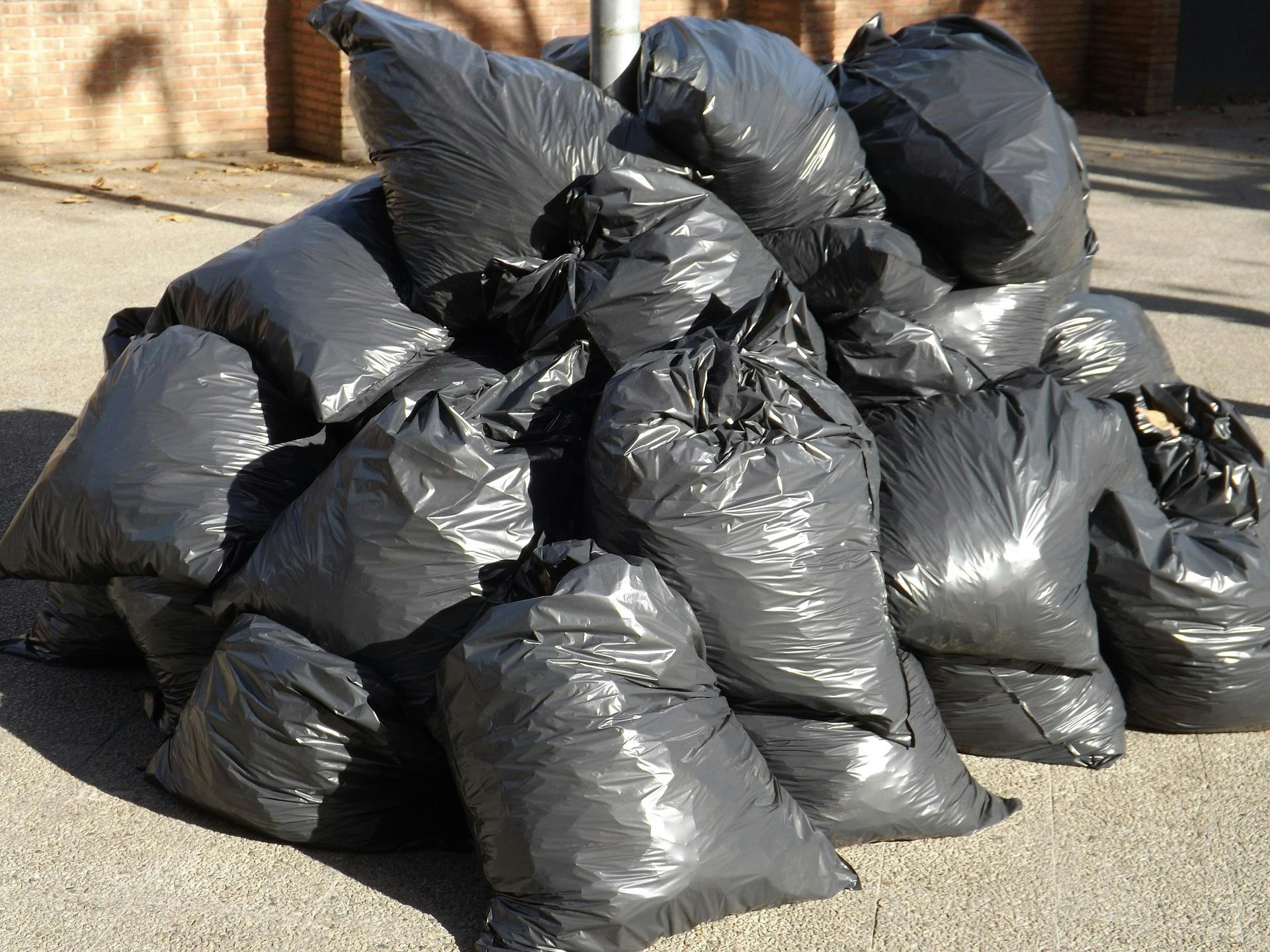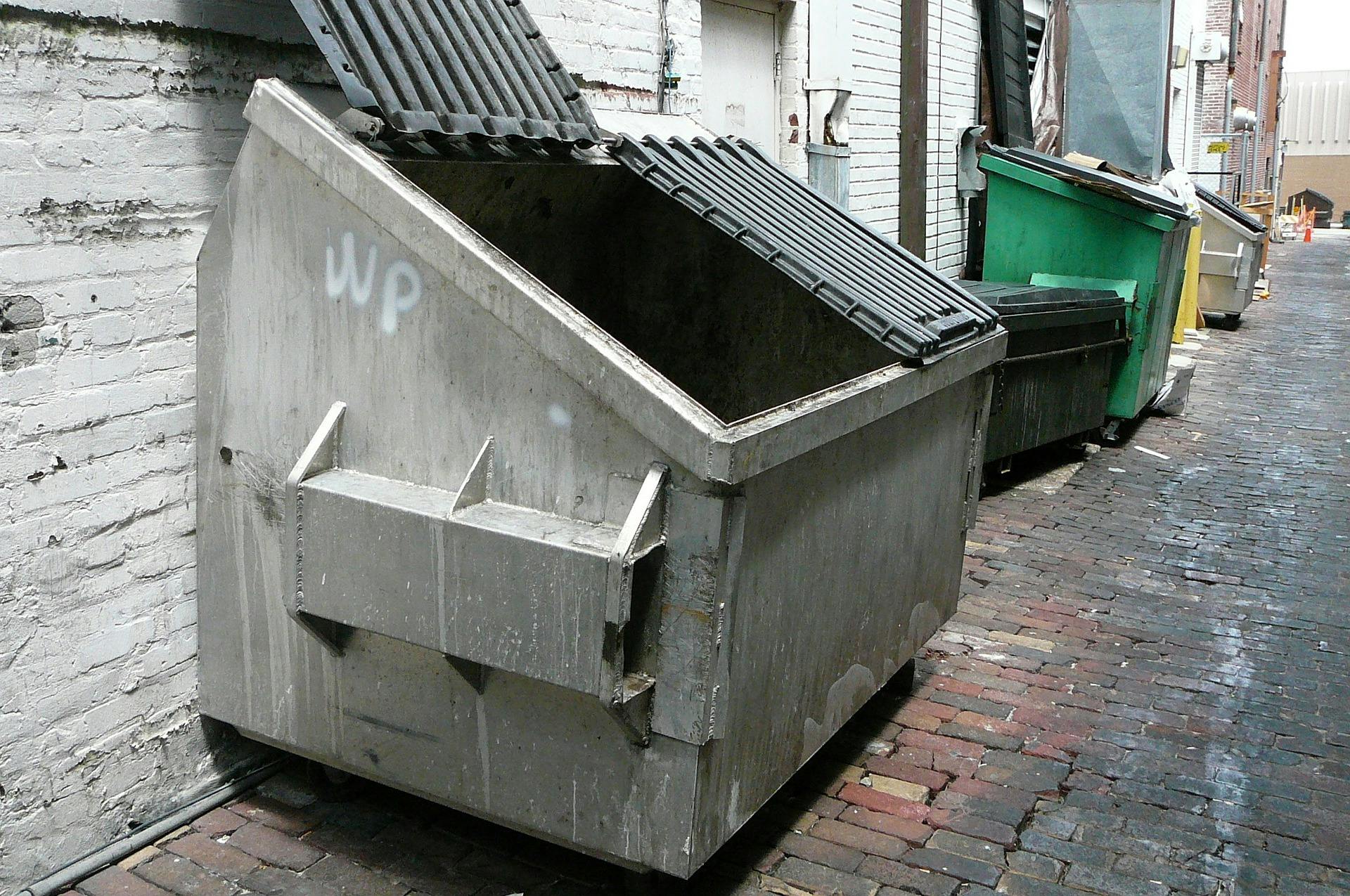In Philadelphia, there are a very strict set of rules and regulations regarding the placement and use of commercial dumpsters, including licensing and identification medallions. Failure to abide by these rules could result in hefty fines, so the more you know about Philadelphia dumpster laws, the better off you will be.
What Qualifies as a Dumpster

In Philadelphia, a dumpster is a container for waste or recyclable material that is defined for repeated reuse and serviced by a provider, not including containers that are serviced by the City of Philadelphia. In order to use a dumpster within the city, you must have approval to use a dumpster and approval as to where it is placed. These details are regulated through the use of dumpster licenses. Also note that placing recycling and rubbish in bags for collection does not take the place of a having a dumpster and is prohibited.
Dumpster Licenses
In order to have a commercial dumpster in Philadelphia, you first must have a license. This is true for anyone who uses a container for trash or recyclable material that is serviced by a private hauler. There are three types of dumpster licenses available: those for dumpsters to be placed on private property (also includes parking lots, driveways, and private alleys), those for construction dumpsters (these require an annual license that is acquired by the hauler), and those for dumpsters placed on a sidewalk (aka, “in the public right-of-way”).

Private property licenses involve a one-time license and the fees are dependent on dumpster type (trash or recycling) and the size of the dumpster. Also, note that dumpsters located on private property must be screened from public view by a shed, an opaque fence, shrubbery, or something similar. For dumpsters placed in a public right-of-way, an annually renewable license is necessary and placement approval is required. As with private property licenses, the fees are dependent on the size and purpose, and fees for recycling dumpsters are cheaper than fees for trash containers. Note that temporary construction dumpsters that will be placed in a public right-of-way will need a different type of permit.
Responsibilities of Dumpster Users
There are quite a few things that commercial dumpster users in Philadelphia are responsible for, beginning with making sure their dumpster has the appropriate type of identification. A dumpster should have the name (or company logo) and telephone number of the hauler, a means of identifying the user, and the dumpster’s unique identification number. Also required is what is known as a dumpster medallion, which is a small UHF radio frequency device that transmits the license number, name and number of the licensee, the name and number of the dumpster provider, the approved location of the dumpster, as well as any other information required by the city of Philadelphia. These devices are referred to as radio frequency identification medallions and they transmit the information above so that enforcement officials using handheld devices can quickly determine who is responsible for what dumpster. There is a fee associated with obtaining a dumpster medallion, but failure to have one will result in a fine. Note that while licenses must be renewed every year, there is no need to obtain a new medallion as long as the one you are using continues to operate correctly.

Commercial dumpster users are also responsible for making sure their dumpsters are emptied at least once a week, and if they contain non-grindable food waste, they should be emptied once every three days (or more, if the city requires). This is not just an arbitrary requirement — it helps to keep odors and vermin under control. In fact, it is against city regulations to place grindable food in the dumpsters; food-handling establishments and restaurants are supposed to install a garbage disposal to handle grindable food waste. If you are caught putting grindable food waste in the dumpster, you run the risk of being fined.
The area around a dumpster should be kept free of litter, the dumpster should never be allowed to overflow with trash, and the lid should be secured when the dumpster is not in use. Dumpsters also need to be kept clean and free of offensive odors, which in turn means they need to be cleaned twice a year. Note, however, that they are not supposed to be cleaned on the sidewalk or the street. In addition, no dumpsters are to be serviced between 9 pm and 7 am.
Conclusion

Dumpster laws in Philadelphia are no joke. If you plan to use a dumpster service, make sure that you have obtained the correct approval for where you want to place the dumpster, that you have a valid license for the dumpster, and that it has a UHF medallion with the correct information. Also take the time to understand what your responsibilities are when it comes to dumpster usage, including cleaning, what type of trash is allowed, and when the dumpsters can be serviced.
Accurate Waste Services
At Accurate, we provide dumpster rental and service for Philadelphia, Delaware, Chester, Montgomery, Bucks, and Berks counties in Pennsylvania. Whether you need help with dumpster rental, waste removal, or recycling, our knowledgeable staff at Accurate Waste Services will help you find the best solution — and that includes navigating the often complex regulations of Philadelphia dumpster laws. Contact us today and see what we have to offer!
